The promise within John’s Gospel to Mary Magdalene on Easter Day was for further contact with Jesus, and the Gospel reading selected for this Sunday—John 20:19-31—fulfills that promise. Becoming present in a room with locked doors, Jesus breathes into his closest students, giving them Spirit so that they might engage in a dedicated practice of forgiving sin. The famous incident with Thomas is widely misinterpreted, probably as a result of Renaissance art that depicts Thomas touching Jesus’ wounds. In the account itself, however, Jesus’ presence is enough to make Thomas believe. Jesus then insists that the point of his being raised from the dead is to demonstrate that belief comes from insight, rather than from physical contact or even seeing. The psalms of the day—118:14-29 and 150—present faith in its strong relationship to the praise of God, while Acts 5:27–32 portrays praise as an irresistible impulse, even under duress, as a result of the Spirit’s support. During the season of Easter, readings from Acts regularly take the place usually occupied by the Scriptures of Israel. In today’s readings and on several occasions during Easter, a reading from the Apocalypse (Revelation 1:4-8) takes the place of the Epistle, in this case because it is written as a letter from Jesus, “firstborn of the dead.”
The First Reading
Acts 5:27–32
The Apostles’ Appearance Before the Supreme Council of the Judeans
In this reading from the book of Acts, the theme of witnessing to God’s raising and exaltation of Jesus continues with Rock—Peter—and the Apostles’ obedience before the Supreme Council (the Sanhedrin) of the Judeans. Empowered by the Spirit, their witness encourages obedience to the God of Israel who exalted Jesus for the people of Israel.
—
When they brought the Apostles, they stood them before the Supreme Council of the Judeans. The High Priest interrogated them: “We gave you a direct order not to teach in this name, and yet you have filled Jerusalem with your teaching, intending to make us guilty for this man’s blood.” In response Rock—Peter—and the Apostles said, “It is necessary to obey God rather than people. The God of our fathers raised up Jesus, whom you killed by hanging him on a tree. This man God exalted to God’s own right hand as sovereign and savior to give to Israel repentance and release from sins. We are witnesses to these things, as also is the holy Spirit, which God gave to those who obey.”
The Psalm
Psalm 118:14-29
Thanksgiving for Victory Brought About by God
This psalm of victory perhaps originally celebrated the Israelites’ return from the Babylonian exile. It is rich in allusions that are given new meaning by the Easter season: “I did not die but live” (verse 17); “The rock the builders rejected” (verse 22); and, overall, that of the Lord’s gate through which the righteous will enter (verse 20). The “horns of the altar” (verse 27) refers to horn-like projections at each corner of the Jerusalem Temple’s sacrificial altar. This feature of the altar is as required in the altar’s construction in Exodus 27:2.
—
- Yah is my strength and my rescue;
God has become my victory. - A sound of joy and victory is in the tents of the righteous!
The right arm of the Lord performed mighty acts; - The right arm of God is exalted;
The right arm of the Lord performed mighty acts. - I did not die but live,
and I will recount the acts of Yah! - Yah has certainly chastened me,
but God did not hand me over to death. - Open for me the gates of the righteous;
I shall enter them giving thanks to Yah. - This is the Lord’s gate;
only the righteous shall enter it. - I thank you, for you have answered me;
you have become my victory - The rock the builders rejected has become the cornerstone!
- This is from the Lord;
it is extraordinary in our eyes. - This is the day the Lord brought about;
let us rejoice and celebrate on it. - Please, Lord, rescue us!
Please, Lord, cause us to prosper! - May all who enter be blessed in the name of the Lord!
We bless you all from the house of the Lord. - The Lord is God and gives us light;
tie up the festival offering with cords;
bring it to the horns of the altar! - You are my God, and I shall thank you;
my God, and I shall exalt you. - Give thanks to the Lord, for God is good:
God’s steadfast love is eternal!
or Psalm 150
The Lord Deserves Our Praise
The book of Psalms ends with this declaration of God’s mighty deeds for which we owe praise and thanksgiving.
—
- Praise Yah!
Praise God in God’s sanctuary;
praise God in the firmament of God’s strength. - Praise God for God’s mighty deeds;
praise God in harmony with God’s abundant greatness. - Praise God with a blast of the trumpet;
praise God with lute and lyre. - Praise God with timbrel and joyous dance;
praise God with strings and flute. - Praise God with loud cymbals;
praise God with a crash of cymbals. - Let all that breathe praise Yah!
Praise Yah!
The Second Reading
Revelation 1:4-8
Jesus the “Firstborn of the Dead and Ruler of the Kings of the Earth”
In this reading, John of Patmos, speaking as a prophet, formally addresses seven assemblies (or churches), explaining that he speaks on behalf of God enthroned in heaven, before whom seven spirits dwell (Zechariah 3:1-9). Paired with God, Jesus appears as firstborn of the dead, as well as the faithful witness who releases people from their sins and makes them a kingdom and priests to God. His coming in judgement is fearful (compare Daniel 7:13 and Zechariah 12:10-11), accounting for the urgency of the message. God himself speaks at the close; he is is the Alpha and Omega, who was, is, and is to come (Isaiah 41:4; 44:6).
trustworthy, firstborn of the dead and ruler of the kings of the earth. To the one who loves
us and released us from our sins by his blood, and made us a kingdom, priests to God, his
Father: to him, give glory and power forever. Amen.
Look, he comes with the clouds,
and every eye shall see him,
even such as pierced him,
and all the clans of the earth shall mourn him.
The Gospel
John 20:19-31
The Committed Students See Their Risen Master
The Gospel of John underscores the power of its own witness to bring people to belief in Jesus and to the life that he offers. Those who first see their risen Master on Easter evening recognize him by his wounds. Thomas seeks the same evidence, but—like Mary Magdalene—recognizes Jesus in the personal encounter of being known by him. Then the Gospel draws its hearers into the story by having Jesus call them “favored,” favored with belief even when we have not seen him.
—
When it was evening on that first day after Sabbath and the doors were shut where the committed students were on account of their fear of the “Judeans,” Jesus came. He stood in their midst, and said to them, “Peace to you.” Having said this, he showed them his hands and side. Then the students rejoiced, having seen the Master. Then Jesus said to them again, “Peace to you: just as the Father delegated me, I also send you.” Having said this he breathed into them and said, “Take holy Spirit: whose sins you release are released for them; whose sins you hold are held against them.”
Yet Thomas, one from the Twelve called the Twin, was not with them when Jesus came. Then the other students were saying to him, “We have seen the Master.” But he said, “Unless I see in his hands the mark of the nails and thrust my finger in the mark of the nails and thrust my hand into his side, I shall not believe.” After eight days Jesus’ students were inside again, and Thomas was with them. Jesus came while the doors were shut and stood in their midst and said, “Peace to you.” Then he said to Thomas, “Put your finger here, and see my hands, and take your hand and thrust it into my side. Do not be faithless, but faithful.” Thomas answered and said to him, “My Master and my God.” Jesus said, “Because you saw me, you have believed? Those are favored who have not seen, and believe.” Then Jesus did many other signs before the students that are not written in this scroll, but these are written so that you might believe that Jesus is the Anointed, the Son of God, and so that, believing, you might have life in his name.

